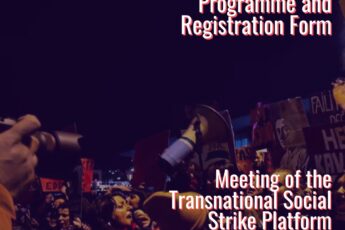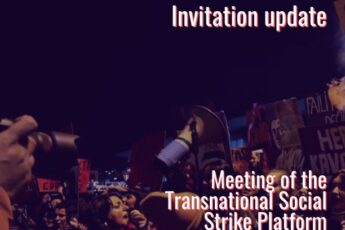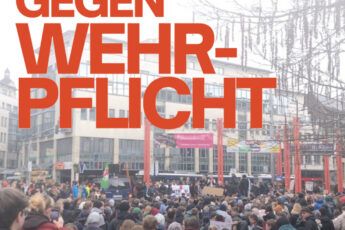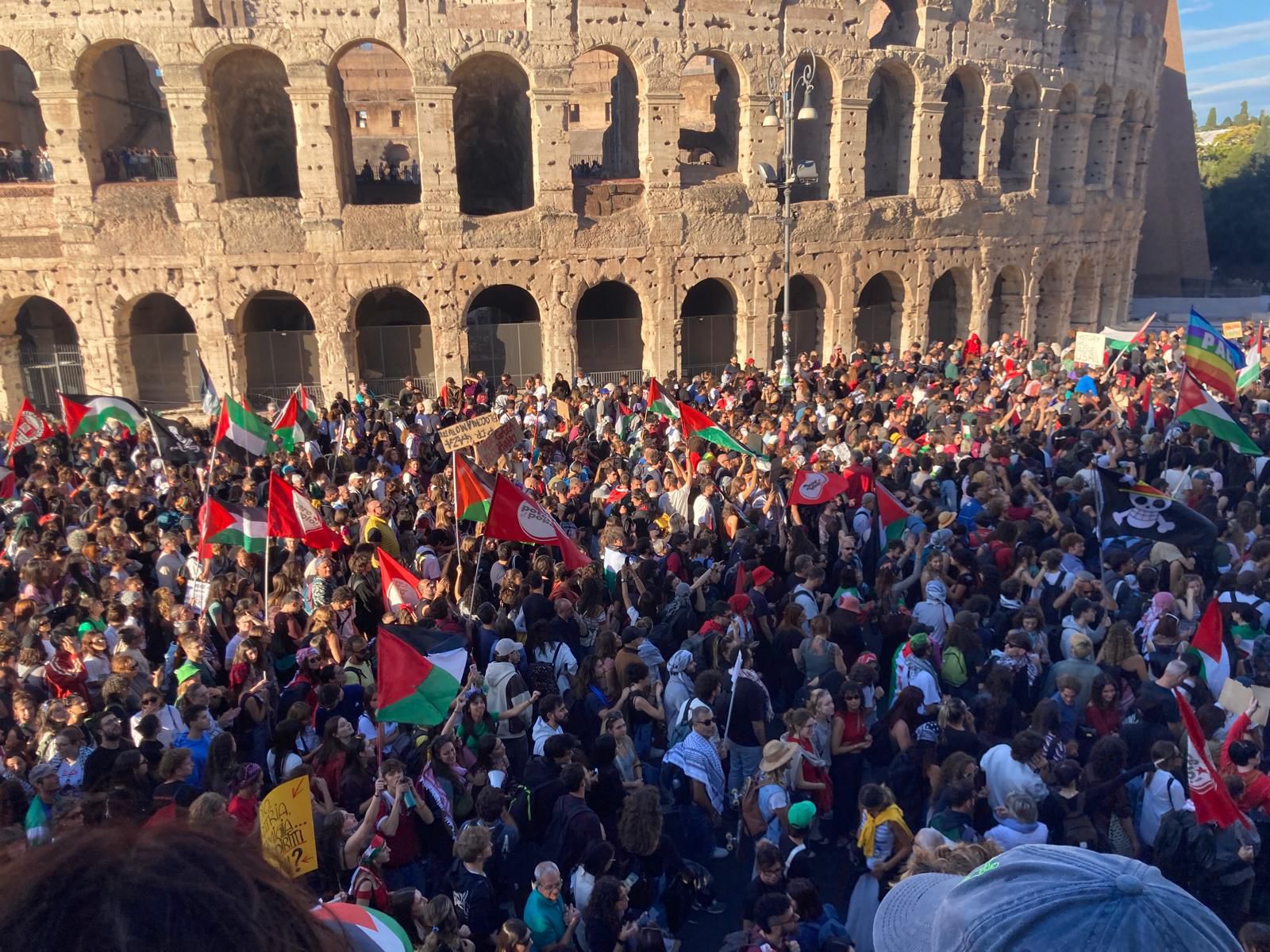
On October 3rd, Italy was blocked by a general strike against the genocide in Gaza and in support of the Global Sumud Flotilla. Overall, participation in the strike reached around 60% of the workers, even though the strike was declared illegitimate by the authorities the night before. Two million people took to the streets for demonstrations happening in more than one hundred cities. Schools and universities were closed; transportation shut down; public functions interrupted. In several metal factories, the participation in the strike was between 80% and 100%, while the day before sit-ins with hundreds of nurses and doctors were organized in front of hospitals from North to South, and schools and universities were occupied all over the country. In the face of the “Security Decree” of the Meloni government that made traffic blockades and occupation of logistic infrastructures a criminal offence, people decided to block not just highways and train stations, but the whole country.
The day was anticipated by the huge turnout of the September 22nd strike and by general pressure from workers’ assemblies in factories, warehouses, schools, and hospitals to force the unions to act. That something was happening was already clear when thousands of people arrived at the port of Genoa to bring food to load onto the ships of the Flotilla, and fifty thousand marched from the city to the port to escort the sailing on August 30th. When the port workers of the city declared: “if the Flotilla will be stopped, we will block everything”, they were giving a voice to an urgency that was by then widespread: that something must be done to stop the genocide, that the unbearable sense that there is no alternative to rearmament, sacrifice, bombs and starvation is not final, that the authoritarianism of the leaders of today can be opposed.
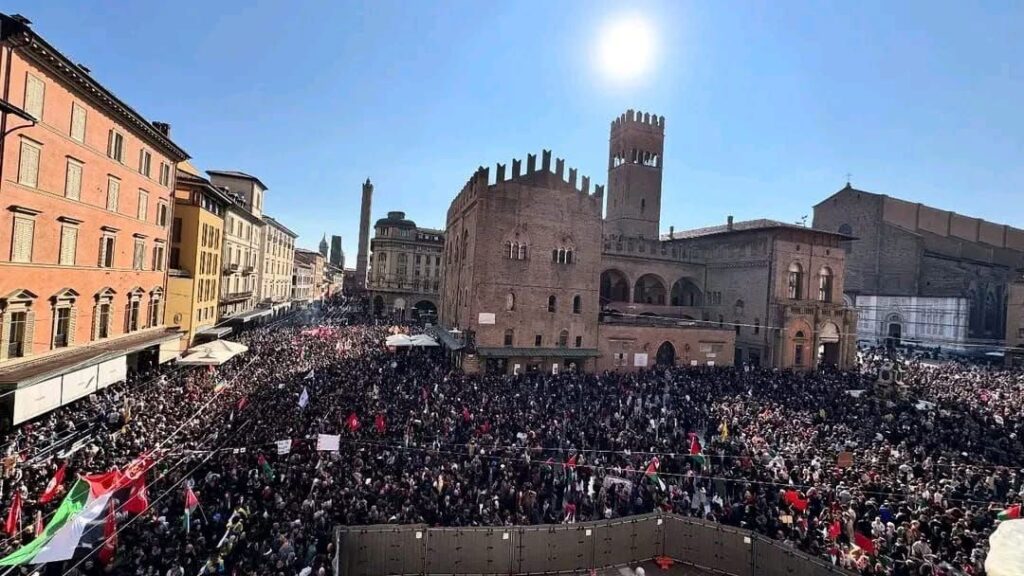
Since then, a movement of opposition to the war became visible and chose the strike as its main watchword. The two days of general strikes were moments of synchronization, but the process of activation has been happening daily, overcoming the barriers of union memberships. In this movement, workers call for solidarity with Palestine and refuse to contribute to the genocide. But there is much more that is being challenged: the whole logic that the war preparation requires submission and sacrifice; the idea that money needs to be spent for weapons; the habit to sacrifice lives and starve people so that capital, in the “Gaza riviera” as elsewhere, can thrive; the Meloni government that wants to pacify society with its racist and patriarchal cries; the idea that there is the “no alternative” to European leaders discussing about drone walls and preparing to escalate.
Until not long ago, the idea of a strike against the war seemed to be just the sign of a possible direction, something difficult to even picture. Now we not only see it is possible, but also that Italy is not an isolated case. In dozens of cities from Ireland to Greece, from Mexico to Istanbul to Bangkok, marches and blockades for Gaza were organized. A massive demonstration took place in Berlin on September 26th, challenging the repression that in these two years has tried to silence as antisemite the protests against the genocide in Palestine while engaging in a systematic prosecution of Arab migrants. Besides rearming Germany and promising to make the German army great again, Merz has joined the chorus of European leaders declaring that the welfare system “cannot be financed” anymore and cuts need to be prepared.
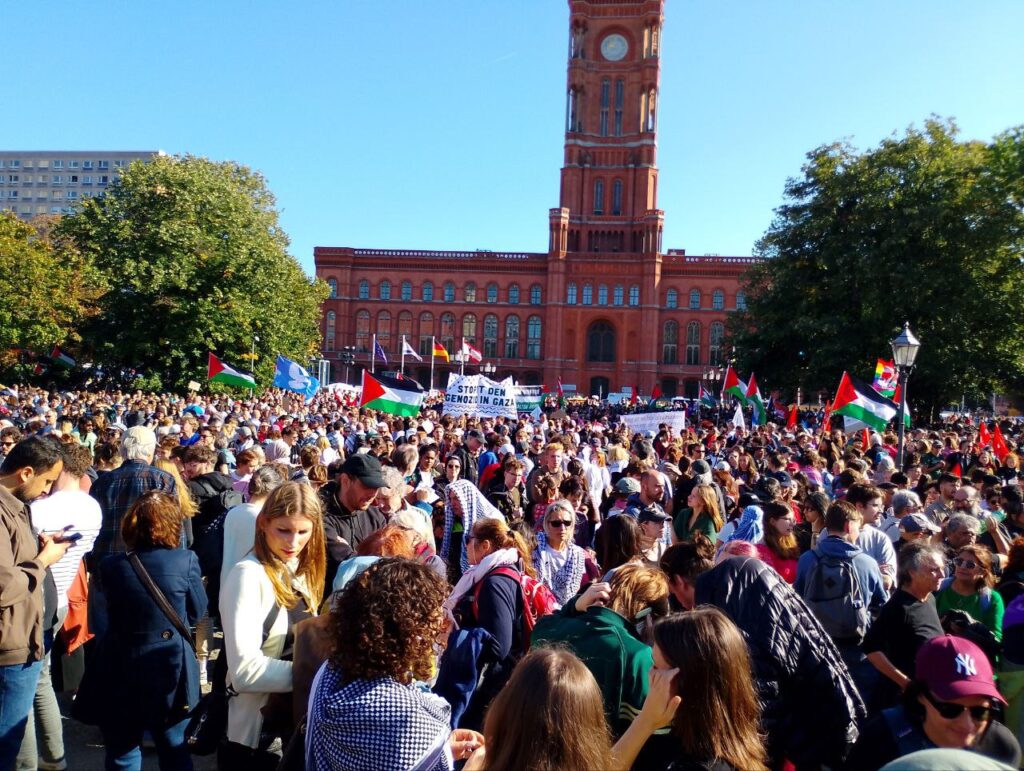
On October 2nd, the third general strike since the beginning of September happened in France, against the austerity measures connected to the approval of the next budget law, which made people cry “We block everything”. The government said these measures are necessary to confront the rise of public debt, which is increasing due to the massive cuts in taxes for entrepreneurs that have been one of the pillars of Macronism. The attacks on workers have to do not only with working conditions – like two days of holidays less per year with no retribution of any kind – but also substantially with wages and social reproduction, with the government proposing to double the obligatory costs of medicine and cut dozens of thousands of healthcare jobs, causing the outrage of hospital workers who took part massively in the recent strikes, together with transport, public sectors and factory workers.
In Greece, a general strike took place on October 1st, against the law that plans to extend to 13 hours the legal workday and push retirement age up to 74 years. One of the lowest wage levels in the EU, normally for Greek workers, one job is not enough to earn a living, so people do two or three of them to make ends meet. The government had the nerve to say that with this “13-hours bill,” people would be able to work more than just in one workplace! But instead of thanking him, people went massively on strike and blocked the country. In Morocco, protests have been sweeping the country after 8 women died while giving birth, in a healthcare system more and more understaffed and underfunded.
Earlier this year, the workers of the German chimney factory Jeremias in Gniezno, Poland, went on strike for 42 days to demand, among other things, higher wages for all workers. It was the longest strike in the Third Polish Republic – after the system change of 1989 – and it won massive support from people and grassroots organizations across the whole country. A major obstacle for the strike was the fact that at Jeremias – as is now the case in many other companies – management uses a union-busting strategy based on employing as high a percentage of temporary workers as possible. These workers are also forced into complete obedience by the constant threat of their temporary contracts not being renewed, which makes them afraid to join a union or take part in a strike. And since the majority of Jeremias’s temporary workers are Ukrainians, the management profits not only from their precarious status as temporary workers and migrant laborers, but also from the fact that they are war refugees – people who often find themselves choosing between agreeing to any bad working conditions or going back to their war-torn country and being sent to the front. The fear of war is a leash that employers are happy to use for their benefit.
The strike is running throughout Europe to break this fear: against the genocide in Palestine, against the cuts in public spending while rearmament is financed, against the idea that we need to make sacrifice because war is inevitable, because worse can happen, that we need to close the ranks and obey while people are being starved, while migrants are killed and exploited. The strike is running, forcing unions and organized structures to listen to this widespread outcry, to hear the fragmented urge that calls for a different future. The strike is on the move, taking varied shapes and timings in different countries. From within this strike movement, we need more than ever to consolidate lines of communication across national borders and union structures. The strike is moving; we need now to intensify the European social strike movement, to make the strike grow, to make the strike last, to put an end to war, present and future.


